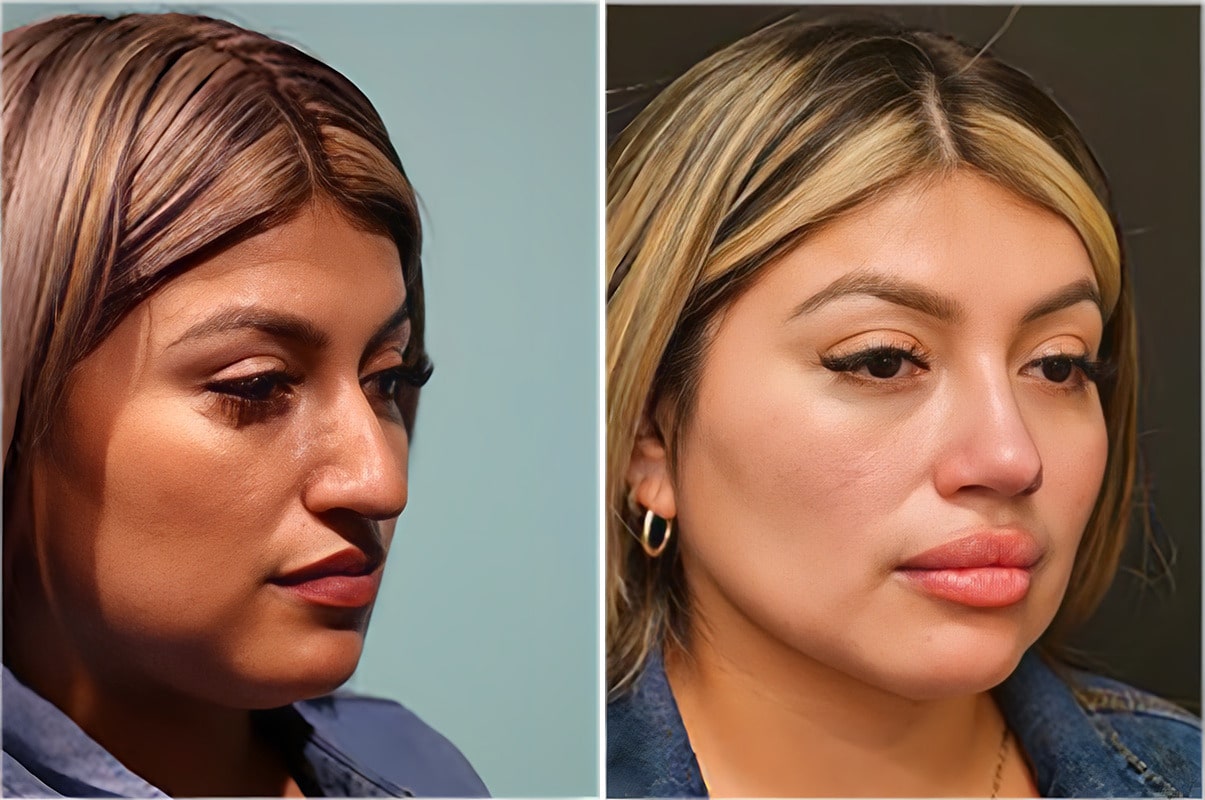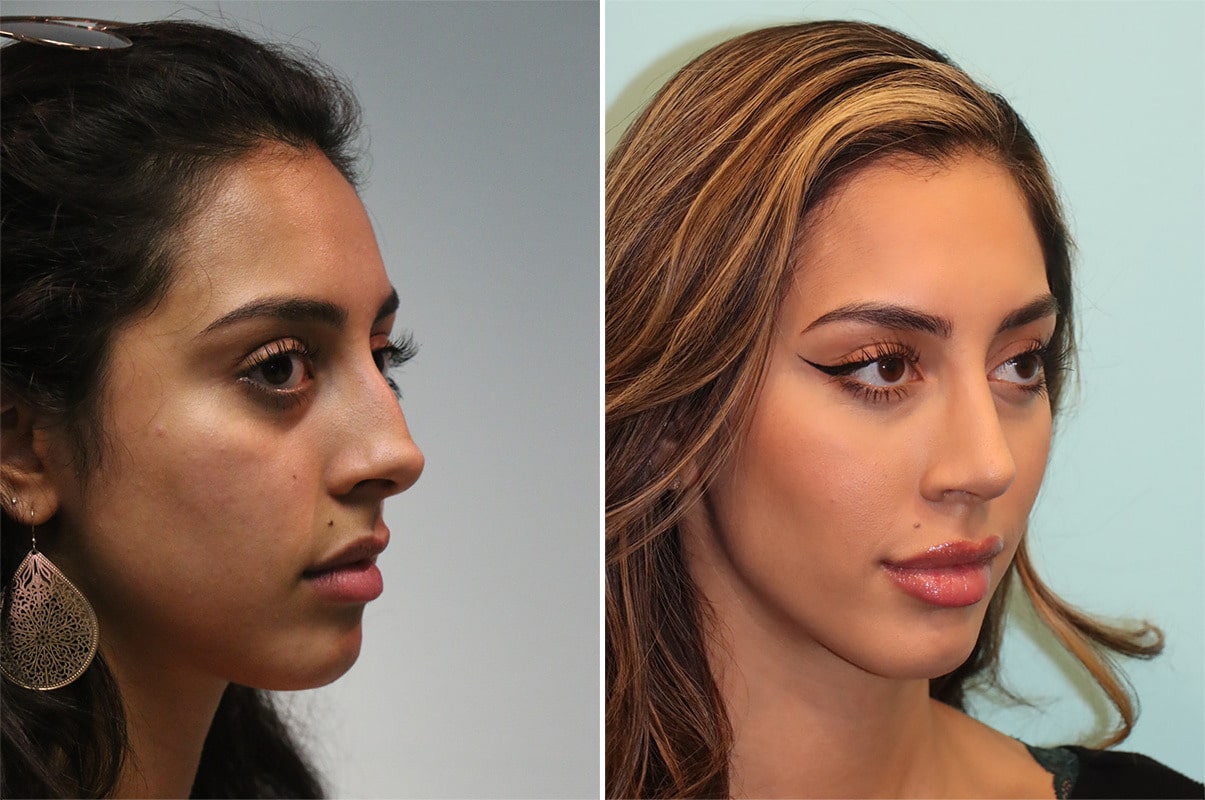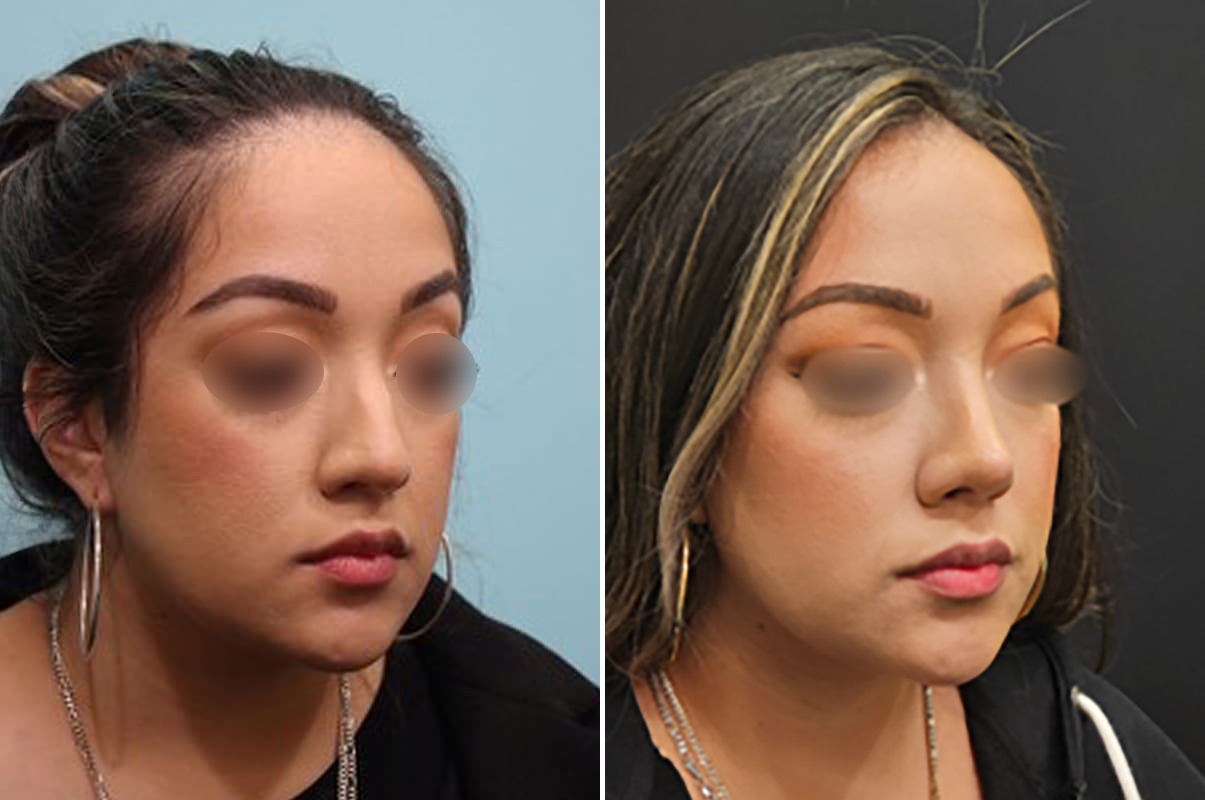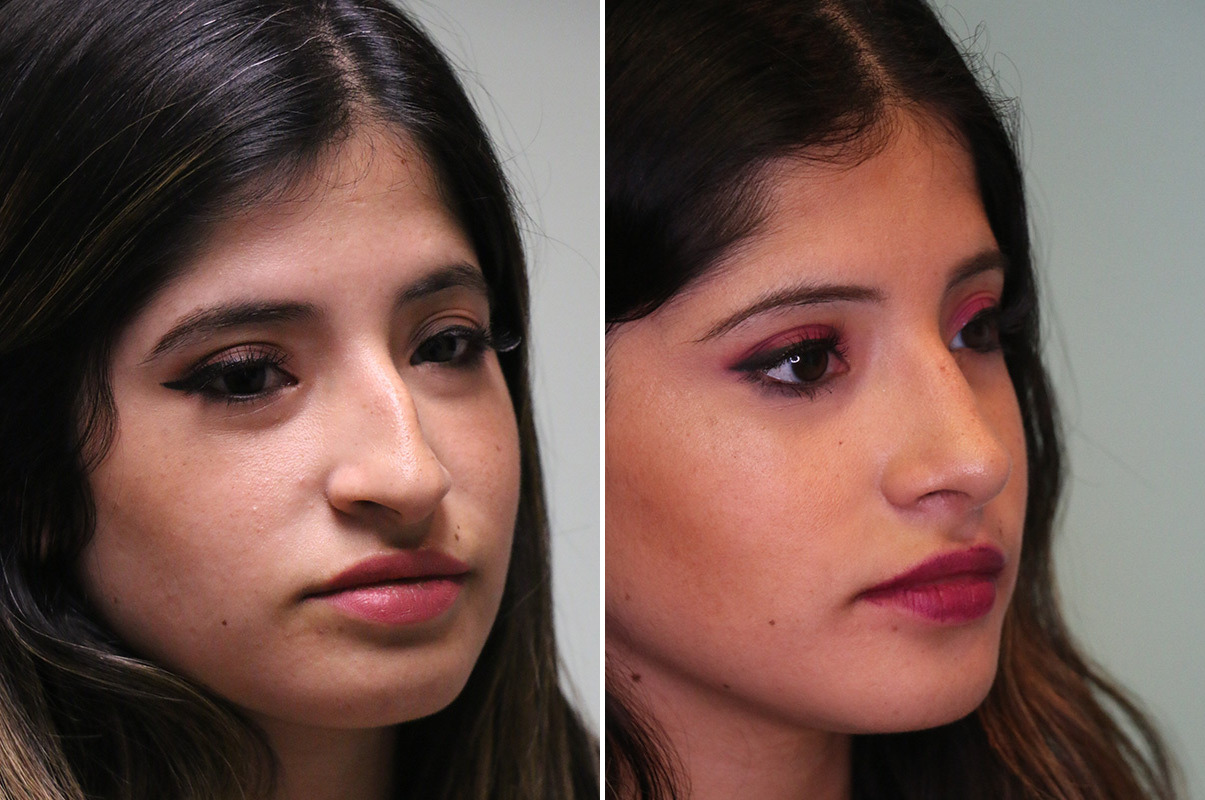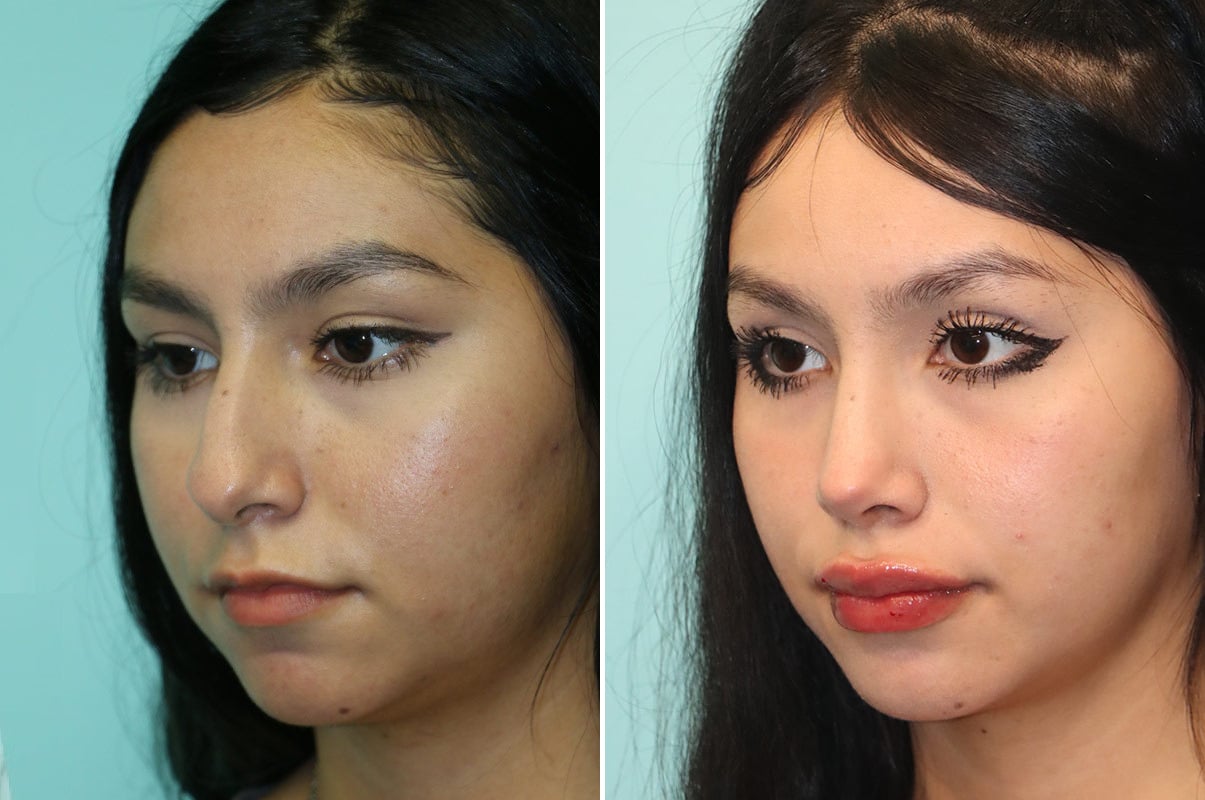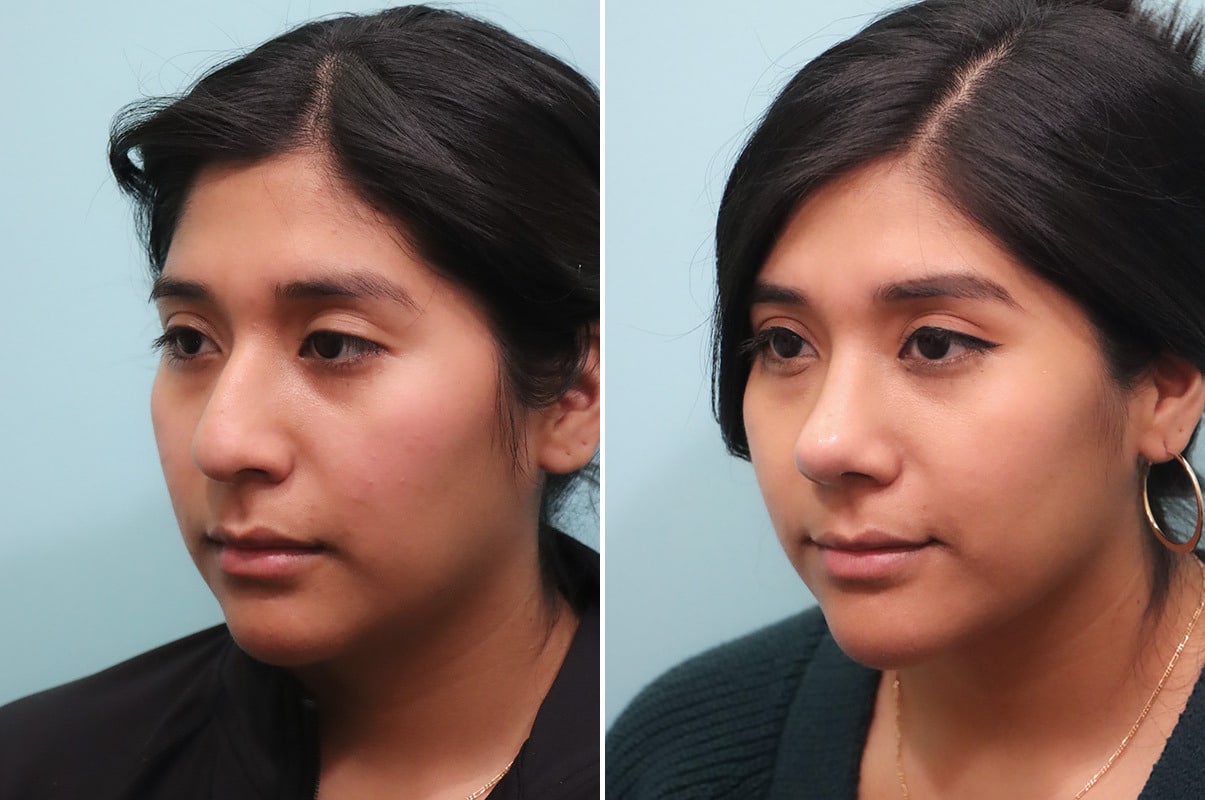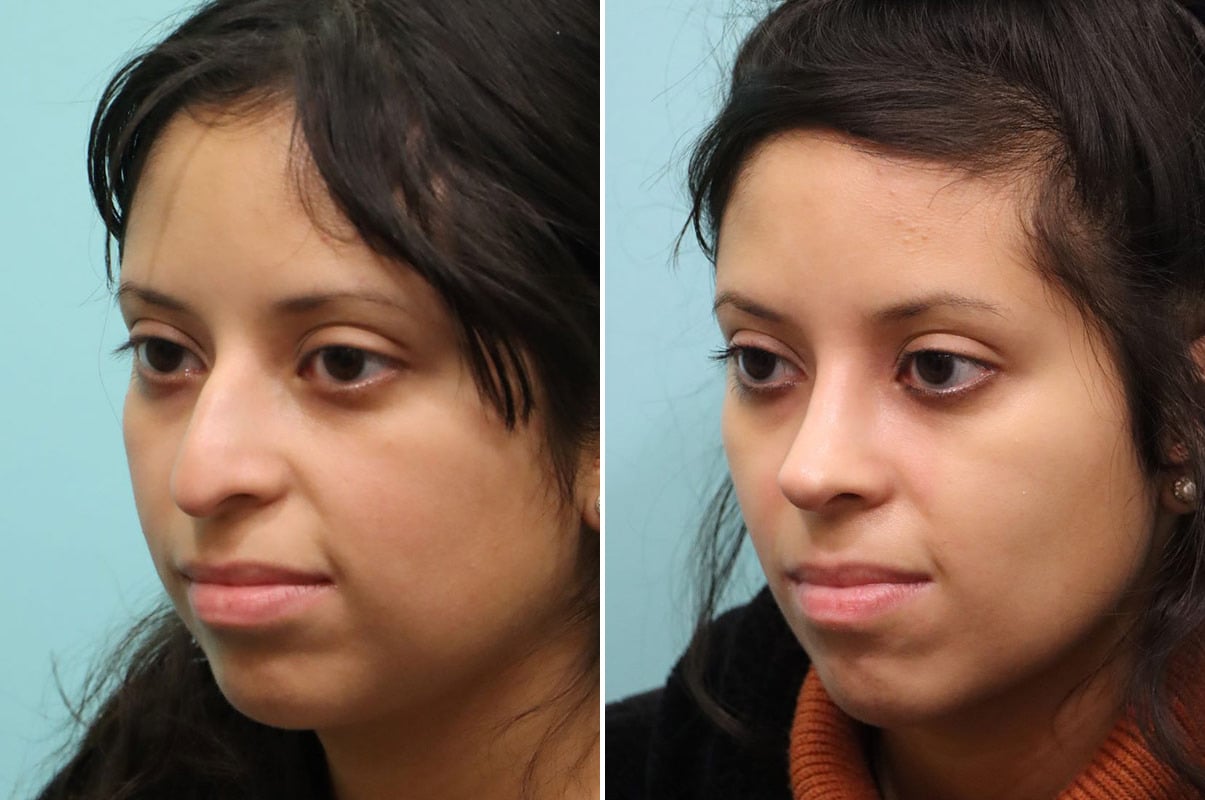Hispanic/Latin Rhinoplasty in Virginia, Washington D.C. and Maryland.
Latin rhinoplasty is more than just a cosmetic procedure; it’s a highly personalized surgery that balances aesthetic goals with cultural heritage. At The Naderi Center, we understand that Latin American patients often seek refinement without erasing their ethnic heritage and identity. That’s why double board-certified facial plastic surgeon Dr. Shervin Naderi uses his world-renowned expertise to create natural, beautiful results tailored to each patient’s anatomy and cultural background, creating noses that perfectly fit each unique face.
Embark on a journey of aesthetic excellence with The Naderi Center. Experience unparalleled artistry and precision for transformative beauty.
Benefits of a Specialized Surgical Approach to Hispanic Noses
Celebrating Your Latin Roots
The objective is not to remove your heritage, but to shape your nose so it appears natural, balanced as well as true to your Latin ancestry.
Looking Better, Breathing Better
With careful techniques, your nose can look more defined while also helping you breathe comfortably day to day.
Care that Understands Your Culture
From bilingual support to respect for Latin diversity, you’ll feel understood, supported, and confident throughout the process.
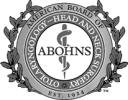

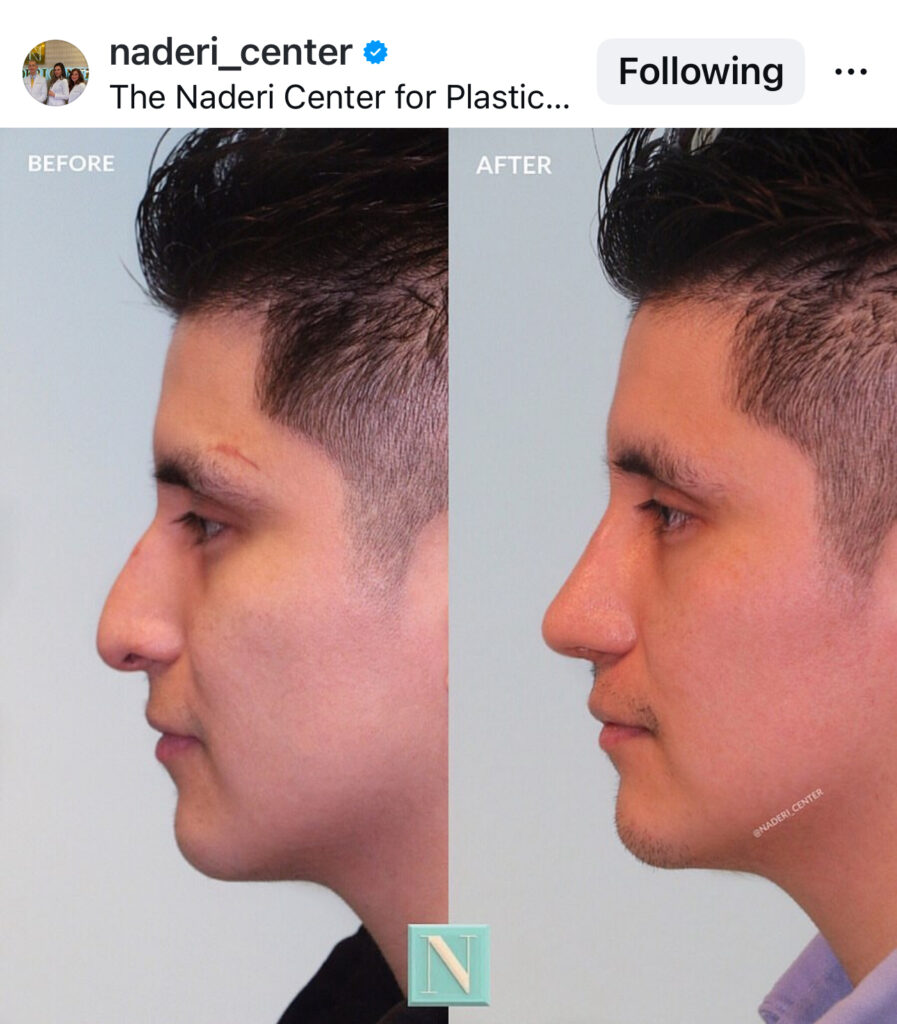
What Is a “Latin Nose”?
Regional Variations in Latin Noses
Mexican and Central American
Caribbean Latin
May include Afro-Caribbean traits like a flatter bridge, wide base, and weaker cartilage.
South American
Patients from Brazil, Colombia and Argentina have Mediterranean or European ancestry, with straight nasal dorsums and thinner skin.
Andean/Indigenous Latin
Characterized by a low, flat dorsum, short nasal bones, and bulbous tip.
Mestizo
A blend of European and Indigenous features, often with thick skin, weak tip support, short weak septums, and short nasal bones.
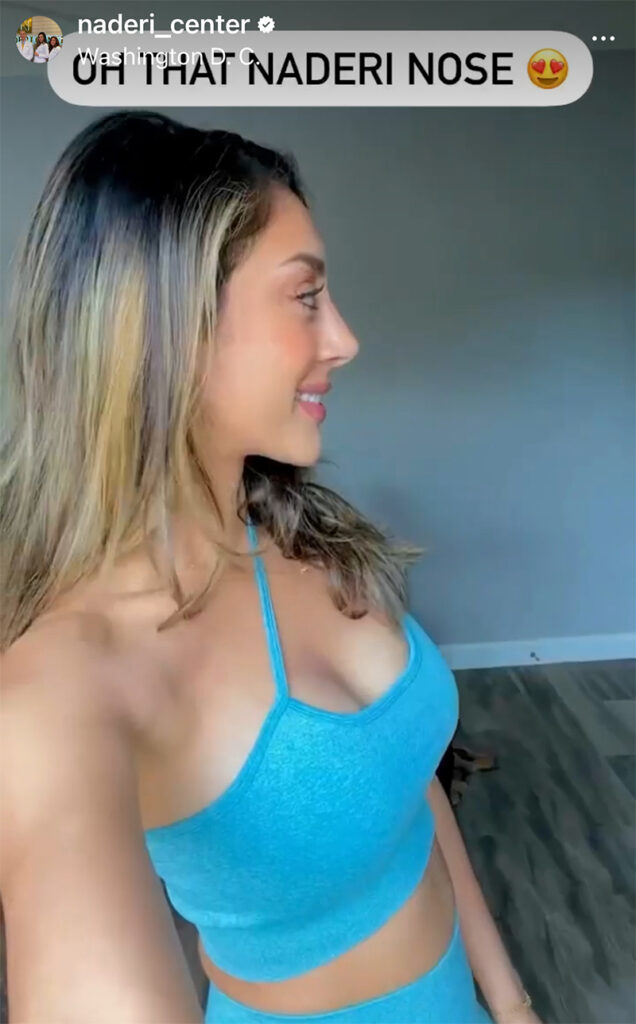
Common Concerns Among Hispanic/Latin Rhinoplasty Patients
- Wide nostrils or alar base
- Bulbous or drooping tip
- Flat or low nasal bridge
- Thick or oily skin
- Poor nasal tip definition &/or support
- Weak nasal cartilage
- Breathing difficulties (deviated septum, valve collapse)
Because Hispanic/Latin noses have a soft cartilage framework and thick skin, skilled surgical technique is important. Dr. Naderi uses developed grafting, suturing and skin preparation methods to provide lasting results with a natural look. His approach combines Preservation but also Structural Rhinoplasty.
Dr. Shervin Naderi: A Global Leader in Ethnic Rhinoplasty Procedures
Dr. Shervin Naderi is one of the world’s foremost experts in rhinoplasty. He is double board-certified in Facial Plastic Surgery as well as Otolaryngology–Head and Neck Surgery (ENT), and he has well over 20 years of experience specializing in facial plastic surgery.
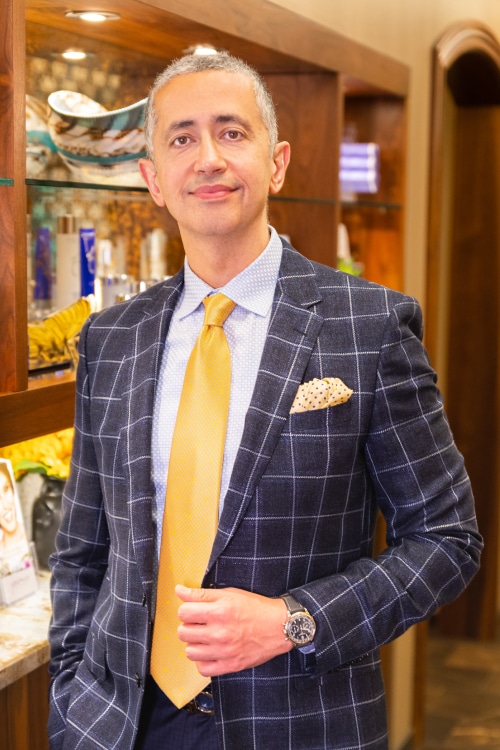
He has:
- Treated thousands of ethnic rhinoplasty patients.
- Served as Medical Director of AAAASF-accredited surgical centers
- Patients who fly in from across the U.S., Latin America, and beyond
- Advanced expertise in both cosmetic and functional nasal issues
- A high-volume before-and-after gallery showcasing Latin and other ethnic results
Testimonial
“I was nervous about surgery because I wanted to keep my Latin identity but also improve my nose shape. Dr. Naderi’s experience with ethnic rhinoplasty made all the difference—my nose looks natural, and I breathe so much better now. The staff with Spanish-speaking skills helped me feel comfortable and supported throughout the process.”
M.C., Miami, FL
Male vs. Female Latin Rhinoplasty
- Men: Stronger profiles, straighter dorsums, less tip rotation. Natural masculine noses.
- Women: Softer, more feminine refined nasal tips, smoother dorsal lines, subtle narrowing.
The doctor ensures each patient retains the integrity of their ethnic features as they achieve balanced results.
Adolescent Latin Rhinoplasty
Hispanic/Latin teens often start to explore nose surgery at about age 14 or 15. The reason is sometimes trouble breathing or bullying in school and self-confidence issues are present because of aesthetic concerns. Dr. Naderi does nose surgery on young people only after their nose bones finish growing, and after evaluating a patient’s emotional and psychological readiness.
Specialized Pre- and Post-Surgical Planning for Latin Skin
Latin patients with thick or sebaceous skin need a tailored surgical and skincare protocol to ensure definition and long-term success. At The Naderi Center, we take extra steps to optimize skin and cartilage health both before and after surgery.
Months Before Surgery
- Medical-grade skincare: ZO Skin Health and Alastin
- Low-dose Accutane: Initiated 4-6 months prior in selected patients to thin the dermis and improve definition
- Arnica supplements: To reduce bruising and swelling
- Anti-bleeding diet: Reduces bleeding and bruises and enhances healing.
After Surgery
- Low-dose oral (and possible injectable) corticosteroids to reduce swelling in patients with thick skin
- Possible continuation of Accutane and skincare follow-ups
- Customized support for darker skin tones to minimize hyperpigmentation and scarring
- Post-operative taping to enhance healing and definition
Week-by-Week Recovery Timeline
Week 1
Splint removed, swelling and bruising begin to resolve. Most patients return to work
Week 2
Return to light activity; most bruising gone for majority of patients
Weeks 3–4
Tip swelling begins to improve; patients return to social functions.
Month 2–3
Increasing definition in bridge and tip. Return to exercise and travel. Nose looks fully healed to naked eyes.
Months 6–12
More refinements visible; more definition.
Years 3-5
Nose fully settles in over 5 years. (especially in thick skinned patients).
Visual Comparison: Anatomy of the Latin Nose
We provide patients with a visual breakdown of nasal types—highlighting the anatomical diversity within the Latin population. Whether you have Afro-Latin, Indigenous, Mestizo, or Mediterranean traits, Dr. Naderi explains how your nose will be approached uniquely and respectfully during your consultation using high-resolution photography and facial mapping and computer imaging. While computer imaging is by no means a guarantee of results, it is a very helpful and crucial tool to be able to see the potential changes to the face.
Cost of Latino Rhinoplasty
- Explore financing options like 6-month, interest-free CareCredit plans.
- Functional components may be billed to insurance when applicable saving patients around $2000.
Spanish Language Support and Cultural Sensitivity
The team has bilingual Spanish-speaking staff to help with communication for patients who prefer to speak Spanish. Not everyone on the team speaks Spanish, but translation services are ready, and cultural respect is part of every step of the surgical journey. The team knows that heritage and identity are important to Latin patients. Communication is very important to Dr. Naderi because he wants his patients to be fully informed. He wants them to understand the goals, the limits along with the risks. Patients can take part in the discussion fully.
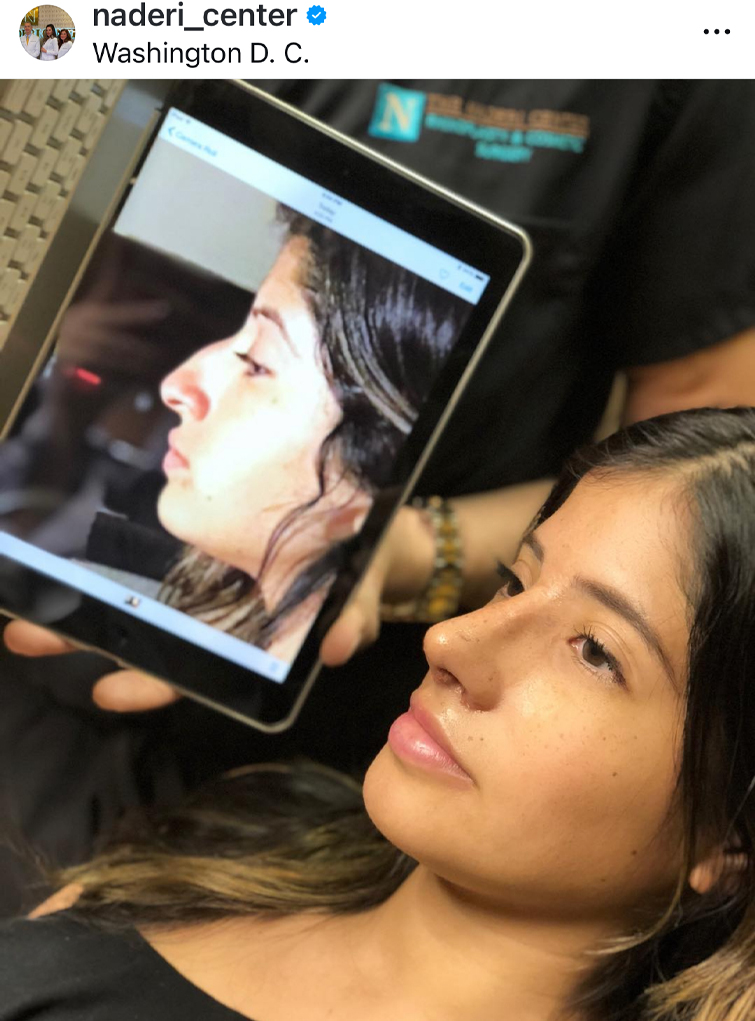
Out-of-Town Patients
Many of our Latin rhinoplasty patients travel from out of state or internationally. Visit our Out-of-Town Patients page to learn more about how we help coordinate accommodations, travel timing, and post-surgical care for those flying into the Washington, D.C. area.
Latin/Hispanic Rhinoplasty with Dr. Naderi vs. Surgery Abroad
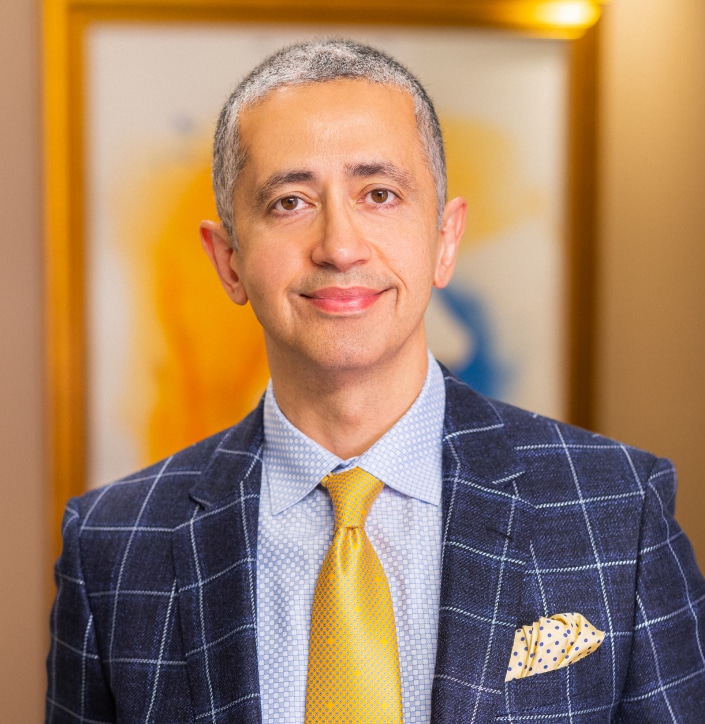
- Credentialing standards abroad may be inconsistent.
- Board certification in the U.S. requires years of rigorous training and annual hospital credentialing.
- If complications like infection or scar tissue arise, having your rhinoplasty surgeon nearby is critical.
- The hospitals in the U.S. offer hyperbaric oxygen therapy; they also provide other advanced interventions that are not available in other places.
- The strict medical-legal standards that American doctors adhere to do not exist in many other locations in the world. There have been stories of patients abroad having a piece of their rib removed without consent, or even horrific rare stories like having their kidney removed while under anesthesia without their knowledge.
- Follow-up care is nearly impossible if your surgeon is overseas.
Dr. Naderi operates in the Greater Washington DC metro area (DMV region), where he regularly treats a diverse Latin American population.
Schedule a Consultation with an Ultra Specialist at The Naderi Center
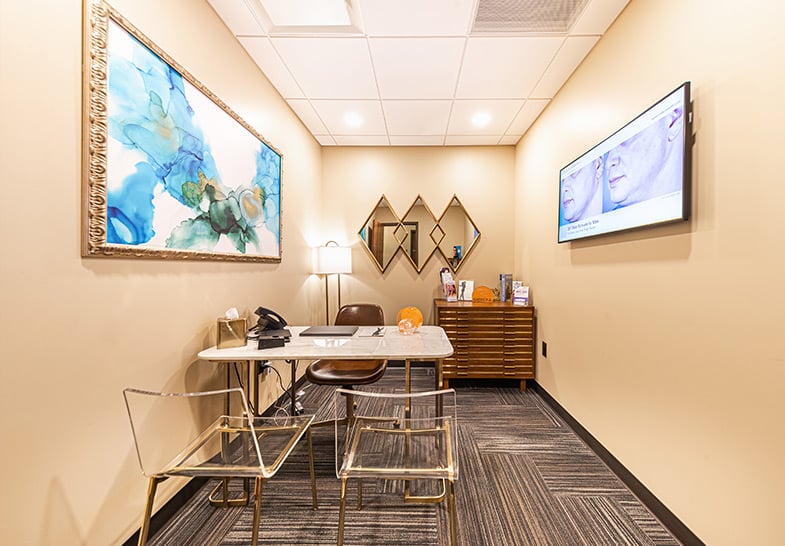
FAQs about Hispanic Nose Job
Will rhinoplasty erase my Latin features?
The goal of Dr. Naderi is to improve your ethnic features, but not remove them. You will still look like you, as you appear more refined and balanced.
Can I fix my breathing and improve my nose shape at the same time?
Yes. Dr. Naderi addresses both form and function in one surgery.
I have very thick skin. Can I still get definition?
Yes - depending on your anatomy. With pre-op skin thinning treatments like Accutane and Dr. Naderi’s cartilage grafting techniques, even thick skin can achieve excellent definition.
How long should I stay in town after surgery?
Plan to stay about 6-7 days for splint removal and early follow-ups. Our out-of-town patient concierge team can help you coordinate hotel, nursing service and transportation.
What if I had previous nose surgery in Latin America and want a revision?
Dr. Naderi frequently performs complex revision rhinoplasty for patients dissatisfied with prior results abroad. Book a consultation to explore your options. Not everyone is a candidate for revision based on their anatomy or goals. We ask you to send good photos for evaluation prior to your consultation.
